gerontology news
The Gerontological Society of America®
inside this issue:
•Annual Scientific Meeting
Wrap Up 6
•Journals Going
Paperless 4
•GSA Awardees 10
GSA Innovation Fund Welcomes Donations
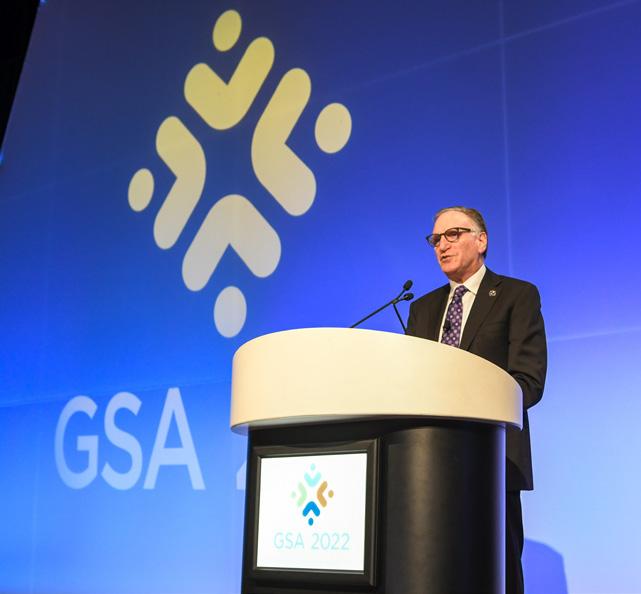
GSA recognizes that during the holiday season, many people make yearend donations to worthy causes. One such option is the GSA Innovation Fund, which is used to develop new programs, products, and services for members. All contributions are tax deductible. Visit www.geron. org/giveback to learn more.
Join a GSA Interest Group
Did you know GSA has more than 50 interest groups covering a range of topics? They are a great way for members to connect with others who share their interests. They also help members stay informed about topics outside their areas of expertise. Each GSA interest group has its own GSA Connect Community to share information and resources.
Visit www.geron.org/ interestgroups to learn more.
JOIN THE CONVERSATION
http://connect.geron.org
www.facebook.com/ geronsociety www.twitter.com/ geronsociety
Engage with GSA on social media!
Annual Scientific Meeting Returns to In-Person Format
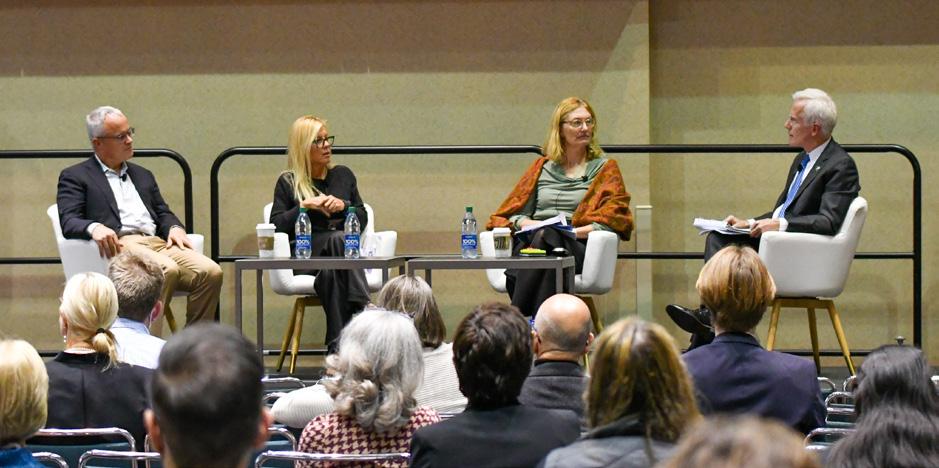
Approximately 3,200 people from 38 countries made their way to Indianapolis, Indiana, from November 2 to 6 for GSA’s first in-person Annual Scientific Meeting in 36 months.
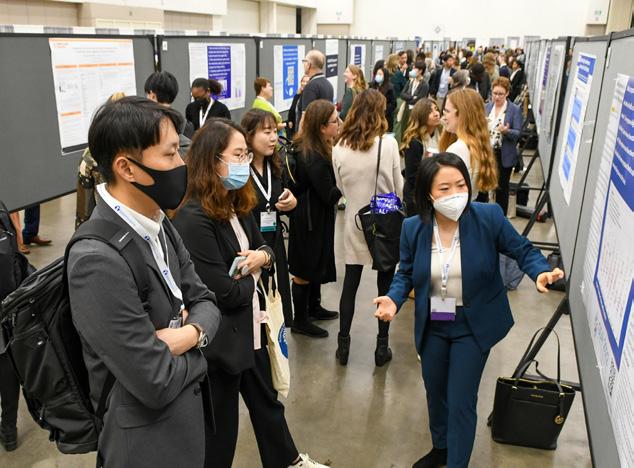
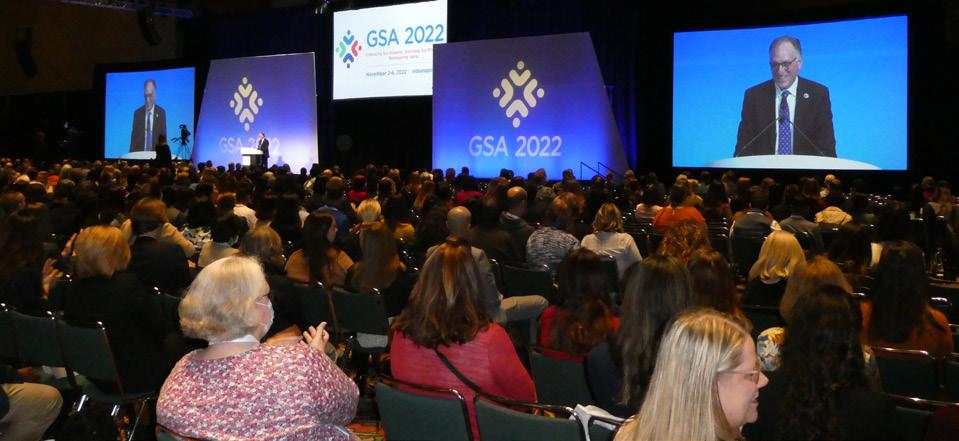
The photos and facts below capture highlights from the five-day event.
5President Peter Lichtenberg welcomed conference-goers to his Opening Plenary Session for a livestreamed keynote address by Pulitzer Prize-winning author Isabel Wilkerson. Her speech, which focused on race in America, received a standing ovation. The session also honored the 2022 recipients of GSA’s highest awards with video tributes: Nancy R. Hooyman for the Donald P. Kent Award, Sheryl Zimmerman for the Robert W. Kleemeier Award, and María P. Aranda for the James Jackson Outstanding Mentorship Award.
5The program included just over 1,000 individual symposium presentations, 450 papers, 1,350 posters, 15 pre-conference workshops, six momentum discussions, and 14 award lectures.
3GSA’s Board of Directors convened in-person. Back row (L to R): Judith Howe, Patricia Heyn, Theresa Harvath, Peter Lichtenberg, Holly Brown-Borg, James Nelson, Monique Brown, Karon Phillips. Front row (L to R): Carmen Sceppa (elect), Janet Wilmoth, Laura Haynes (elect), Elizabeth Vasquez, LaDora Thompson, James Appleby.

December 2022
Continued on page 6
From the CEO
Home Again with the Extended GSA Family
By James Appleby, BSPharm, MPH • jappleby@geron.org
Wasn’t it great to be together again? After 36 months apart, more than 3,200 researchers, clinicians, educators, and aging field professionals gathered to make the magic happen again last month in Indianapolis for GSA’s Annual Scientific Meeting. As we know, social engagement is important for us as we age. In our field, I think the same can be said for scholar engagement!
The journey “home” was not easy. Since the GSA membership last met in-person in November 2019, each of us has experienced loss — personal loss, professional loss, and career upheaval. This upheaval has been especially challenging to students, trainees, and emerging scholars.
But as I told our Opening Plenary Session audience in Indianapolis, it’s important to acknowledge how much we’ve been through individually and collectively, and how resilient we are. I congratulate all of you on your perseverance and resilience, and thank you for the roles you’ve played, big and small, in helping your institutions and communities during an uncertain and fraught period for us all.
In his opening remarks, GSA President Peter Lichtenberg asked how many firsttime attendees were in the audience, and hundreds of hands went up across the ballroom, with most being emerging scholars. This active engagement by junior scholars is an indicator of the Society’s strength, though I’ve heard from several junior members recently how difficult it can be to get to the meeting due to the lack of travel funds. GSA does its part by offering a variety of student travel funds, both Society-wide and section-specific.
And there is simple way that established scholars and GSA fellows can help the next generation of
gerontologists advance their careers: set up a directed scholarship at your home institution or alma mater that provides support for an emerging scholar to attend the GSA Annual Scientific Meeting. I learned that past GSA President Terrie Fox Wetle had established a scholarship at her alma mater, Portland State University, in honor of a late colleague. The scholarship enables one Portland State student to attend the GSA Annual Scientific Meeting each year. While the gift benefits both the school and GSA in addition to supporting careers in aging, Fox said the best part is getting to know the awardees at the meeting.
My family was so inspired by Fox’s idea that we set up a similar GSA Annual Scientific Meeting travel scholarship that is awarded each year to two students at the Philadelphia College of Pharmacy. The scholarship is named for our mom, a 1952 graduate, and is intended to cultivate new interest in research at the intersection of medication use and aging.
If you’re interested in nurturing the next generation of scholars in the aging field while supporting your home institution or alma mater, one option is to set up a scholarship like the examples described above. It will strengthen the field, help the next generation of scholars get a start, and provide you the opportunity to recognize a mentor or loved one. If you would like to learn more about how to do this, please email me at jappleby@geron.org
And speaking of strengthening the field, the call for 2023 GSA Annual Scientific Meeting abstracts, to be presented in Tampa, Florida, opens February 1 and closes March 9. Start thinking about this as you enjoy some well-deserved time off for the holidays! I wish the best to you and yours.
gerontology
Volume 50, Issue 12, December 2022
editor-in-chief/lead author: Todd Kluss tkluss@geron.org
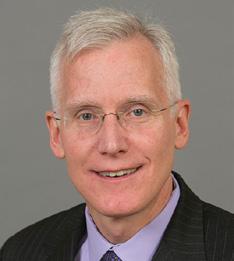
managing editor: Karen Tracy ktracy@geron.org
associate editor: Megan McCutcheon mmccutcheon@geron.org
circulation worldwide: 5,000
letters to the editor: We will publish letters to the editor in response to issues raised in the newsletter. Please limit letters to no more than 350 words. Letters should include the writer’s full name, address, and telephone number. Letters will be accepted or rejected at the sole discretion of the editors and may be edited for clarity or space. Send to: tkluss@geron.org
Gerontology News (ISSN 1083 222X) is published monthly by The Gerontological Society of America, 1220 L Street NW, Suite 901, Washington, DC 20005 and additional mailing offices. Subscription for members of the Society is included in annual dues. Non-member subscription rate is $50 per year. News items must be submitted by the first of the month prior to publication.
Copyright © 2022 by The Gerontological Society of America. Articles may be photocopied for educational purposes without permission. Please credit Gerontology News.
Send news items to: Gerontology News
The Gerontological Society of America 1220 L Street NW, Suite 901 Washington, DC 20005 or email: tkluss@geron.org
Send advertisements to: 1220 L Street NW, Suite 901 Washington, DC 20005 or e-mail: advertising@geron.org Ad rates are available at www.geron.org
Advertising policy: Gerontology News accepts ads for conferences and special events, fellowships, jobs, and degree programs relevant to the field of aging. We reserve the right to reject or discontinue any advertising. Ads do not constitute an endorsement by The Gerontological Society of America.
news 2 • December 2022 • gerontology news
member news
In Memoriam
Andrew P. Goldberg, MD, FGSA, a professor emeritus in the Department of Medicine at The University of Maryland School of Medicine and the Baltimore Veterans Administration (VA) Medical Center, passed away on October 25, 2022, at the age of 77.
He served in the U.S. Coast Guard from 1970 to 1972, and traveled to the North Pole as the medic aboard an expedition. He subsequently held numerous posts throughout this career, including assistant professor at Washington University School of Medicine from 1977 to 1983; associate professor and director of research in the Division of Geriatric Medicine at Johns Hopkins University and Francis Scott Key Medical Center from 1983 to 1990; and head of the Division of Gerontology at University of Maryland, director of the Geriatric Research, Education and Clinical Center at the Baltimore VA Medical Center, and principal investigator of the Claude D. Pepper Older Americans Independence Center and the Nutrition Obesity Research Center from 1992 to 2015.
Goldberg was awarded over $100 million in grant funding from the National Institutes of Health and National Institute on Aging during his career. His work investigated such topics as exercise and weight loss, obesity, type 2 diabetes, metabolism, and the rehabilitation of patients following stroke or complications of cardiovascular disease. He authored over 200 journal publications and served on numerous committees and editorial boards.
He was nationally recognized for his achievements in geriatrics by receipt of the 2007 Joseph T. Freeman Award from GSA and the 2009 Master Teacher Award in Geriatric Medicine and Gerontology from SUNY Downstate Medical Center.
Members in the News
• Valter Longo, PhD, FGSA, was mentioned in an October 5 article in The Wall Street Journal titled “‘The Oldest Cure in the World’ Review: No First Helpings.”
• An October 15 Los Angeles Times article titled “‘You don’t want to live anymore.’ California’s seniors living in poverty struggle without retirement savings” featured quotes from Donna Benton, PhD.
• Theresa Andrasfay, PhD, was quoted in an October 17 USA Today article titled “US life expectancy drops as Europe shows signs of recovery after COVID, study finds.”
• On October 22, Kyriakos S. Markides, PhD, FGSA, was featured on the premiere episode of “Salud,” a new program airing on WGBH-FM in Boston, hosted by GSA Journalists in Aging Fellows Program alumna Tibisay Zea.
Zimmerman Joins Dream Foundation Board
Sheryl Zimmerman, PhD, FGSA, the University Distinguished Professor of Social Work and Public Health at the University of North Carolina at Chapel Hill, has joined the National Board of Directors for Dream Foundation, the only national dream-granting organization for terminally-ill adults. Zimmerman will work closely with staff, serve as a valuable advisor to program services, and bring awareness to end-of-life, palliative care, and long-term care organizations based on her extensive knowledge and networking.
Zimmerman also co-directs the Program on Aging, Disability, and Long-Term Care, Cecil G. Sheps Center for Health Services Research,at Chapel Hill. She is recognized as an expert in long-term services and supports for older adults and for her work in comparative studies of long-term care and end-of-life services and supports. She is also the 2022 recipient of GSA’s Robert W. Kleemeier Award.
LTQA Welcomes Super as Senior Fellows
The Long-Term Quality Alliance (LTQA) has announced that Nora Super, MPA, the CEO of NS Ideas, LLC and a long-time member of the LTQA Board of Directors, has joined the organization as a senior fellow. Super is a thought leader on healthy longevity and the economic and social impact of global population aging.
Most recently, Nora was the executive director of the Milken Institute Center for the Future of Aging, where she provided strategic direction for the three primary focus areas of the center: healthy longevity, financial security, and improving dementia care. While at the Milken Institute, Super created and launched the Alliance to Improve Dementia Care, which upon her departure included 100+ organizations, and seeks to transform and improve the complex health and long-term care systems that people at risk for and living with dementia must navigate.
Resnick, Katz Named JAMDA Editors
The Society for Post-Acute and Long-Term Care Medicine is pleased to announce that past GSA President Barbara Resnick, PhD, CRNP, FGSA, and Paul Katz, MD, CMD, have been named co-editors-in-chief of JAMDA, the society’s monthly medical journal. They will officially be taking over with the January 2023 issue. (The outgoing editors are GSA members Sheryl Zimmerman, PhD, FGSA, and Philip D. Sloane, PhD.)
Resnick is a professor in the Department of Organizational Systems and Adult Health at the University of Maryland School of Nursing, co-directs the Biology and Behavior Across the Lifespan Research Center of Excellence, holds the Sonya Ziporkin Gershowitz Chair in Gerontology, and does clinical work at Roland Park Place. Katz is professor and chair of the Department of Geriatrics at Florida State University College of Medicine.
December 2022 • gerontology news • 3
Connection This month’s $25 amazon.com gift certificate winner: Henrietta Armah, MA The recipient, who became eligible after referring new member Deborah Dadson, BA was randomly selected using randomizer.org. For more details on the Colleague Connection promotion visit www.geron.org/connection.
Colleague
policy news
By GSA Policy Advisor Brian W. Lindberg, MMHS
Divided Nation, Divided Congress: Democracy Prevails
Now that the initial excitement of the midterm elections has waned, have we a realistic idea of what the future holds for policy action, whether legislative or regulatory, for the GSA membership and older adults?
We know that the Congress is now further divided with Democrats continuing to hold the majority in the Senate (50 seats with two Independents caucusing with 48 Dems; if Senator Raphael Warnock (D-GA) retains his seat in Georgia’s December runoff election, the party breakdown will be 51–49) and Republicans will have a slim majority in the House of Representatives (House Republicans currently have a 220-213 majority with two races still not called). This marks the first Republican House–Democratic Senate split since the 113th (2013-2015) Congress, which was the beginning of President Barack Obama’s second term.
One of the biggest changes is that Representative Nancy Pelosi (D-CA) will no longer be speaker of the house or its minority leader. Pelosi was the first woman Speaker, and she excelled as visible leader, backdoor negotiator, and agenda setter. Her imprint is on all major legislation passed, such as the Affordable Care Act, the American Rescue Plan, the Inflation Reduction Act, and many other policies ranging from science to climate to intelligence. She has decided not to seek a leadership position in the 118th Congress. Current Democratic Caucus Chair Hakeem Jeffries (D-NY) was recently named minority leader; Representatives Katherine Clark (D-MA) and Pramila Jayapal (D-WA) could compete for minority whip; and Representative Pete Aguilar (D-CA) is expected to be caucus chair.
Republican members of the House have nominated Representative Kevin McCarthy (R-CA) to be the new speaker of the house (on a vote of 188–31), although he will face some opposition from the right in January. Representative Steve Scalise (R-LA) will be House majority leader.
Senate leadership will continue with Senator Chuck Schumer (D-NY) as majority leader, Senator Dick Durbin (D-IL) as Democratic whip, Senator Mitch McConnell (R-KY) as minority leader (defeating a challenge from Senator Rick Scott (R-FL), and Senator John Thune (R-SD) as Republican whip.
Random Ruminations on Election Results
• According to polling, health care was not the dominant issue in the election, but some pundits believe that health care costs as part of the current inflation was important to many voters and that the recently passed Inflation Reduction Act (for more information on the IRA, see my column in August’s Gerontology News), which addressed drug prices, may have helped some Democratic candidates.
• In broad terms, the House is likely to spend much more time doing investigations and oversight of the Biden-Harris Administration than the previous Congress, including on Hunter Biden and the funds spent on the pandemic.
• The election has cleared the way for the Senate to continue to confirm judges and other Biden nominations that could have been derailed or delayed by a Republican majority.
• There is precedent for moderates of each party pulling together enough support to secure passage of legislation. It is possible that this could be a formula that could work during the 118th Congress. However, not to be too negative, there will not be another chance to pass a Build Back Better-like package including its many programs supporting older adults and individuals with disabilities with a divided Congress.
• The average age of the 118th Congress skews younger than the current average age of the Senate (64) and House (58). Polls show that Republicans and Democrats agree that the age of the Congress is too old. The average age is 46 for newly elected Representatives and just shy of 50 for newly elected Senators — younger than each of the past seven freshman classes. Representative Maxwell Alejandro Frost (D-FL), at 25, is set to become the first Generation Z member of Congress. We should probably heed Ronald Reagan’s immortal words: “I am not going to exploit, for political purposes, my opponent’s youth and inexperience,” when he was asked if, at age 73, he was too old to be president.
• Health and Human Services (HHS) Secretary Xavier Becerra pointed out recently that in working with the 118th Congress, HHS would likely focus on implementing already passed legislation, rather than pushing new, far-reaching proposals that have little chance of passing. For example:
• On drug pricing: HHS has work to do to implement the Medicare drug price negotiation provisions in the Inflation Reduction Act Congress passed in August
•
On ARPA-H: Congress provided $1 billion to create an Advanced Research Projects Agency for Health in a March appropriations bill, and HHS still must decide where to locate the new agency
•
On long COVID: Becerra said National Institutes of Health research on the condition is moving slowly because the agency is trying to be inclusive in gathering study participants and needs additional appropriations from Congress
• On Centers for Medicare and Medicaid Services (CMS) payment reform: Becerra said CMS will work on payment reform, but that lawsuits are slowing the agency’s efforts to move away from fee-for-service to performance-based pay.
Congressional Committees
Committees are structured to conduct much of the policy making work of the Congress including investigating issues, considering policy proposals, and shaping the legislation that becomes the law of the land. Committee chairs wield a good deal of power in deciding what the committee rules will be, what hearings will be conducted, and
4 • December 2022 • gerontology news
policy news
which bills will be considered and brought forward for votes in the subcommittees, the full committee, and on the floor of the chamber (House or Senate). In addition, committee chairs must manage a large professional staff who write committee reports, identify witnesses for hearings, research issues, and investigate topics of importance so that committee chairs can provide federal agency oversight.
GSA has always been a non-partisan organization and believes that aging policy is nonpartisan, so we will continue our approach to educate all members of Congress. In addition, it makes sense to reach out to new members and new committee chairs to make sure they know of the resources and information that GSA can provide on gerontological issues.
Key Senate Committee changes:
• Senator Patty Murray (D-WA) is moving to chair the Appropriations Committee; former Aging Committee Chair Susan Collins (R-ME) will be ranking member.
• Senator Bernie Sanders (I-VT) will now chair the Health, Education, Labor, and Pensions Committee; Senator Bill Cassidy (R-LA) will be ranking member.
• Senator Ron Wyden (D-OR) will remain chair of the Finance Committee; Senator Mike Crapo (R-ID) will be ranking member.
• Senator Bob Casey (D-PA) will continue as Special Committee on Aging chair; Senator Mike Braun (R-IN) will be ranking member.
• Senator Sheldon Whitehouse (D-RI) will chair the Budget Committee; Senator Lindsay Graham (R-SC) will be ranking member.
Key House Committee changes:
• Ways & Means Committee: The chairmanship is up in the air with several Republicans interested, including Representatives Vern Buchanan (R-FL), Jason Smith (R-MO), and Adrian Smith (R-N); Representative Richard Neal (D-MA) would continue as the ranking member.
• Energy & Commerce Committee: Representative Cathy McMorris Rodgers (R-WA) will move from ranking member to chair; Frank Pallone (D-NJ) will move from chair to ranking member.
• Appropriations Committee: Representative Kay Granger (R-TX) is the likely chair with Representative Rosa DeLauro (D-CT) moving to ranking member. The Subcommittee on Labor, Health and Human Services, Education, and Related Agencies will likely be chaired by Representative Tom Cole (R-OK) with DeLauro as ranking member.
• Education and Labor Committee: Representative Bobby Scott (D-VA) will lose the chairmanship and become the ranking member. Representative Virginia Foxx (R-NC) would become chair but is term-limited under current conference rules. Representative Tim Walberg (R-MI) will likely become chair unless the role is given to Representative Jim Banks (R-IN) if he loses the whip race.
• Budget Committee: Potential candidates for chair are Representatives Jodey Arrington (R-TX), Lloyd Smucker (R-PA), and Buddy Carter (R-GA). Ranking member candidates are Representatives Brian Higgins (D-NY) and Brendan Boyle (D-PA).
Looking Ahead:
In conclusion, the 118th Congress brings to the nation’s capital more than 70 new lawmakers from 32 states who range from ultra-progressive to 2020 election deniers beholden to former President Donald Trump. Both the House and Senate majorities will be slim, so party leaders will need to put forward proposals that will ensure support from the range of members within their party caucuses, while thinking strategically about the 2024 elections (which are just around the bend). In addition, there were elections in many states that could affect older adults, Medicaid, dual eligibles, waiver requests, and long-term supports and services, all worthy of another article.
GSA will be looking at key leadership, committee chairs and ranking members, and freshman members who may be potential partners for our priorities and those of our coalitions. GSA staff and members will seek opportunities to include the aging perspective in issues that are likely to move forward, such as mental health bills, a Chronic Care Act reauthorization, opioid abuse, serious illness, and social isolation legislation, pandemic and vaccine related research and evaluations, hearing, dental, and vision benefits proposals, and other repackaged parts of the Build Back Better Act that may attract bipartisan support as standalone bills. We will also begin our collaboration on work to reauthorize the Geriatrics Workforce Enhancement Program. Our commitment to securing additional funds for the National Institutes of Health, the National Institute on Aging, and the new Research, Demonstration, and Evaluation Center for the Aging Network will not waiver.
Recent GSA Policy Actions
GSA joined more than 240 organizations in applauding the BidenHarris Administration for finalizing a regulatory policy that will have a direct and meaningful impact on the lives of many Medicare beneficiaries and take an important step towards much-needed coverage of medically necessary oral and dental care. GSA has been a strong advocate and has worked as a member of the Consortium for Medically Necessary Oral Health Coverage to advocate for Medicare coverage to extend to dental services that are integral to the delivery of covered medical services.
GSA Vice President for Policy and Professional Affairs Patricia M. “Trish” D’Antonio, BSPharm, MS, MBA, BCGP participated in a meeting with National Institute on Aging (NIA) leadership and the Friends of NIA coalition on November 14. The purpose of the meeting was to hear from the NIA team about the scientific advances achieved this year and to identify ways Friends of NIA can effectively represent the achievements with policy makers to garner continued funding support.
GSA supported a Leadership Council of Aging Organizations (LCAO) chair’s letter to both House and Senate Subcommittee on Labor, Health and Human Services, Education, and Related Agencies leadership. As Congress convenes for the 2022 “lame duck” session, the letter reinforced LCAO final FY 2023 appropriations priorities, urging increased funding in key programs and services for older adults and their caregivers.
Continued
December 2022 • gerontology news • 5
Catch Up Online
Recorded presentations from the meeting will continue to be available to registered attendees until December 31. And revisit the social media conversations on Twitter using #GSA2022

3GSA announced the launch of the new National Center to Reframe Aging as the central hub for the movement to reframe aging on behalf of the Leaders of Aging Organizations collaborative. After nearly three years of building the foundational capacity for the Reframing Aging Initiative, GSA is poised to take the initiative to the next level — increasing visibility of this important endeavor, maximizing integration of the effort within the field of aging, and reaching related professional audiences. From L to R: Reframing staffers Hannah Albers, Patricia D’Antonio, Alycia Claproth.
3Past GSA Presidents gathered for a reception. Back row (L to R): David Ekerdt, Laurence Rubenstein, Nancy Whitelaw, Toni Antonucci, Peter Lichtenberg. Front row (L to R): Theresa Harvath, Harvey Jay Cohen, Nancy Morrow-Howell.


3During the GSA Business Meeting, outgoing President Peter Lichtenberg handed over the reins to Vice President James Nelson, who will take office as president on January 1.

3GSA welcomed 16 new and 10 continuing participants in the Journalists in Aging Fellows Program, which GSA organized for the 13th consecutive year. Half of the participants in the program represent media outlets that serve minority audiences. GSA’s website features links to news articles produced by the fellows, many of which were inspired by their interactions at the meeting.
32021 recipient Luigi Ferrucci (L) delivered the Donald P. Kent Award lecture, “A Journey from Geriatric Medicine to Geroscience”; 2021 recipient Kenneth Ferraro (R) delivered the Robert W. Kleemeier Award lecture, “Dual Functionality in Later Life.”


Looking Ahead to 2023
The call for abstracts for the 2023 Annual Scientific Meeting — taking place from November 8 to 12 in Tampa, Florida — will open on February 1. All abstract submissions must be received by March 9.
6 • December 2022 • gerontology news Continued from page 1 - Annual Scientific Meeting Returns to In-Person Format
espo news
Get to Know Your Junior Leaders: Academy for Gerontology in Higher Education
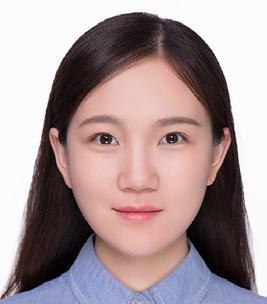
Hello from Shan Qu and Yan-Jhu Su, your Academy for Gerontology in Higher Education (AGHE) junior leaders!
Shan, the first-year junior leader, is a second-year doctoral student at the University of Massachusetts Boston (UMass Boston). She comes from Liaoning, China. She got her Master of Science in Gerontology at the University of Southern California Leonard Davis School in May 2021. She is a graduate research assistant from the Gerontology Department at UMass Boston with Professor Pamela Nadash, and they are working for LeadingAge Center@UMass Boston.
She is a member of a research team to address a key mandate of the Recognize, Assist, Include, Support, and Engage (RAISE) Family Caregivers Act — ACL commissioned the LeadingAge LTSS Center @ UMass Boston and Community Catalyst to seek input from a wide range of key stakeholders on priorities for federal action to support family caregivers. Shan’s current research interests are long-term care policy, family caregivers, labor force participation in later life, and retirement issues.
Yan-Jhu, the second-year junior leader, is a third-year doctoral student at UMass Boston. He is originally from Taipei, Taiwan. He received his Master of Music degree in violin performance at the University of Miami. He then came to Lesley University to study clinical mental health counseling with a specialization in music therapy.
Qu Yan-Jhu Su
He completed his Master of Arts degree with the thesis, “Music Interventions for Chinese Patients with Parkinson’s Disease: Alleviating Symptoms through Arts-Based Interventions.”
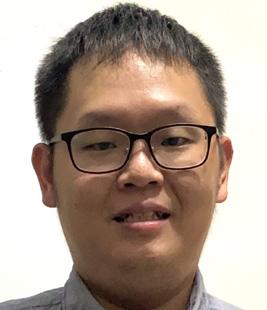
Besides the academic work, he also completed his clinical training as a music therapist at Hebrew SeniorLife during his second master’s degree. During his study at UMass Boston, he completed the second-year paper (master thesis), “The Association between Physical Health and Retirement Planning: Findings from the Health and Retirement Study,” and was awarded a Master of Science degree. Yan-Jhu’s current research interests are the demography of aging, health behavior and health factors among older adults, health disparities, cognitive function, Alzheimer’s disease and related dementias, and mental health among older adults.
AGHE aims to support emerging and experienced scholars/ educators. As junior leaders, we aim to connect the Emerging Scholar and Professional Organization (ESPO) community with opportunities at AGHE. As junior leaders, we also serve in the communication workgroup and Academic Program Development Workgroup (APDW). This year we held our first workshop of the teaching strategies workshop series for APDW, “An Introduction to Transparency in Learning and Teaching (TILT) Methods.” We will have more teaching strategies workshops next year. Stay tuned!
AGHE has many offerings for students and emerging scholars — such as the Student Paper Award, the Student Leadership Award, and the James McKenney Student Travel Award. In addition, AGHE provides teaching resources such as more than 75 gerontology educational resources, updated gerontology and gerontology standards and guidelines, and teaching briefs, to name a few.
At the GSA 2022 Annual Scientific Meeting in Indianapolis, Shan and Yan-Jhu co-chaired the AGHE symposium, “Teaching Strategies for Integrating Diversity in Aging Education Practices.” It was so nice to see AGHE friends in person!
funding opportunities
Deprescribing Network Issues New Call for Grant Applications
The U.S. Deprescribing Research Network has announced two new requests for applications for pilot awards and grant planning awards. The goals of these grant programs are to support earlystage research in deprescribing that has high potential to develop into future large projects, to catalyze research in areas that are of particular importance to the field, to support junior investigator development, and to promote collaborations that will lead to future research projects.
The pilot award supports research related to deprescribing that provides key preliminary data, proof of concept, or developmental work that offers a clear pathway to future, larger-scale studies and
career development for the investigators involved. This award is geared primarily, but not exclusively, toward junior investigators. All topics related to deprescribing are welcome. Proposals should have a plan for engaging stakeholders in the research process; the network can guide interested investigators on strategies to achieve this.
Grant planning awards are intended to fund grant preparation activities that will lead to submission of large grant proposals such as multisite clinical trials. Examples of activities such awards may fund include meetings and travel for study investigators to develop the proposal under consideration or administrative costs to engage multiple clinical sites into a multisite research trial planning process. Letters of intent are due December 12.
December 2022 • gerontology news • 7
Chair: Danielle Waldron, PhD
Vice Chair: Kalisha Bonds Johnson, PhD, RN, PMHNP-BC
Vice Chair-Elect: Brianna Morgan, MSN, CRNP, ACHPN®
Past Chair: Darina V. Petrovsky, PhD, RN
The Emerging Scholar and Professional Organization includes all student and transitional members of GSA.
Shan
journal news
GSA Journals Are Moving to Paperless Publication
GSA and its publisher, Oxford University Press (OUP), are moving the Society’s journals to online-only publication beginning January 1. This decision reflects GSA’s commitment to efficiently disseminating timely information, supporting sustainability, and reducing its environmental impact by “going green.”
Online journals offer a richer, more personalized reading expe rience, and are easily available on-the-go. All articles accepted for publication will be available in PDF and HTML formats, in addi tion to the back catalog of articles from the time of each journals’ launch. Other GSA functions that have moved online include Gerontology News and the GSA 2022 Annual Scientific Meeting Program Book and Abstract Book.
The GSA journals online provide robust search functionality;
graphical abstracts; video and audio content; downloadable slides; supplementary data; split screen reading; linked resources; related content across all books, journals, and online products published with OUP; article sharing through email and social media; article download stats; Altmetric article data; article citation informa tion; virtual collections; and access to accepted manuscripts online (before the copyedited, typeset articles are produced). And online usage drives the GSA journals ever-increasing impact factors.
Journals Offer 2022 GSA Meeting Theme-Related Content
GSA and its journal publisher, Oxford University Press, have cre ated a special collection of articles addressing this year’s Annual Sci entific Meeting theme, “Embracing Our Diversity. Enriching Our Discovery. Reimagining Aging.” All articles will be freely accessible through December 31.
See the current rates at www.geron.org/advertising.
new resources
ASTDD Shares New Oral Health Resources
The Association of State & Territorial Dental
Directors
(ASTDD) has released “Older Adult Oral Health Resources for Collaboration,” which was developed by a workgroup consisting of individuals from state public health programs, academia, and clinicians caring for older adults in a variety of settings.
The Gary and Mary West Foundation supported its development. The intent was to answer a need expressed by state oral health programs and other partners during ASTDD Healthy Aging Committee meetings. Committee members expressed a desire to collaborate with groups that focus on older adults to improve the health of this growing population. The resources include information on the link between oral health and overall health, oral health and chronic disease, special populations, ventilator and non-ventilator pneumonia, nutrition, financing routine dental care, information for non-dental providers, teledentistry, and equity.
Videos Focus on Dementia, Delirium, in the Emergency Room
AARP and the Geriatric Emergency Department Collaborative have teamed up to release two short educational videos about dementia care
and the risks of delirium, or sudden confusion, in the emergency room.
“Dementia and delirium may not be obvious in older adults but can often complicate a patient’s care plan in an emergency room setting,” said GSA member Sarah Lenz Lock, JD, the AARP senior vice president of brain health policy and executive director of the Global Council on Brain Health. “It is our hope that these videos can be a resource for our already overworked healthcare heroes by providing the signs of potential cognitive impairment and suggestions for avoiding dementia-related problems during treatment. We also want caregivers to feel empowered to work with health care providers and advocate for best practices in the ER. Caregivers are not just visitors.”
In advance of the busy winter months that can challenge hospital ER capacity, the videos offer practical recommendations for caregivers and health care providers. Delirium is a sudden change in mental status, or sudden confusion, which often affects older adults following hospital admission or surgery. According to research from the Global Council on Brain Health, delirium is the most common surgical complication for people age 65 and older.
8 • December 2022 • gerontology news
This newsletter reaches GSA’s 5,500 members both in print and online. Gerontology News accepts ads for conferences and special events, fellowships, jobs, and degree programs relevant to the field of aging.
ADVERTISE WITH US!
educational news
TILTing Toward More Inclusive Teaching Practices
By Britteny M. Howell, PhD, CPG, CDP, Assistant Professor of Population Health Sciences, University of Alaska Anchorage (bhmowell2@alaska.edu)
There are many approaches and perspectives to teaching in higher education. In fact, the sheer number of various teaching strategies and practices can overwhelm new and seasoned faculty alike. When I started at the University of Alaska Anchorage, I had already been teaching college for 13 years so I was feeling pretty confident in the classroom. However, over the past five years I have become familiar with more inclusive teaching practices, such as the Transparency in Learning and Teaching (TILT) movement.
TILT is a set of teaching strategies that focuses on making our teaching transparent to students, explaining how and why they are learning these things in these ways. By ensuring students understand how they learn and why they are learning this particular content, we are practicing more equitable teaching and learning strategies that can help to reduce systemic inequities to student success that persist in higher education. Students are less likely to perceive your assignments as “busy work” and more likely to see the potential importance of their coursework as preparation for their futures.
One set of strategies I have begun to incorporate more into my teaching in recent years is from the TILT Higher Education project, which focuses on six specific teaching strategies: inviting your students to participate in syllabus/agenda creation; gauging students’ understanding during class; connecting “how people learn” data with course activities; engaging students in applying the same grading criterion/rubrics you use on their work; debriefing graded tests and assignments in class; to making course assignments more transparent (TILTing assignments). This can seem like an overwhelming amount of information to absorb and incorporate; however, TILT program staff encourage faculty to try just one single new strategy at a time to see how it goes (and I must disclose here that I am not affiliated with the TILT Higher Ed project, just an interested instructor who uses lots of these techniques).
The GSA Emerging Scholar Professional Organization recently held a teaching workshop where we covered the basics of TILTing our teaching. In this recorded webinar, we covered several examples of how some of these 6 main strategies are being put into practice in gerontology health science courses. Attendees were especially interested in TILTing their assignments, which requires that instructors put at least 3 key pieces of information at the beginning of every assignment. A TILTed assignment often starts with a purpose statement, where the student can see exactly why they are doing this assignment, along with objectives for the assignment and skills they will learn. Instructors also need to carefully outline the tasks that we are asking our students to complete in their assignment, including what and how they should perform those steps so that they spend less time trying to figure out what we want and more time doing the actual tasks. Lastly, a TILTed assignment includes a criteria for success section, which may give characteristics or examples of a
successful finished project and information on how the assignment will be assessed, such as a rubric. These strategies are great for any instructor to consider because they have been shown to work. There are many potential barriers to student success among underserved college students, including those experienced by first-generation, low-income, and other underrepresented groups. Research has found that by increasing the transparency of teaching methods and practices, student success increases significantly among those students who most need it (Winklemes 2013). Notably, students exposed to transparent teaching report greater academic confidence, a sense of belonging, and greater mastery of skills in the U.S. (Medawala & Nugawela 2022; Winklemes et al. 2016) and in universities around the world (Umana & Ojong 2022), making it a culturally-appropriate highimpact teaching practice for a variety of settings.
References and Resources
Harsma, E., Manderfeld, M., & Miller, C. L. (2021). Transparency in Learning and Teaching (TILT). Maverick Learning and Educational Applied Research Nexus. https://mlpp. pressbooks.pub/mavlearn/chapter/transparency-in-learning-andteaching-tilt/ Medawala, W., & Nugawela, D. (2022). Effectiveness of Transparency in Learning and Teaching (TILT) in Chemistry Courses. In Integrating Transparency in Learning and Teaching (TILT): An Effective Tool for Providing Equitable Opportunity in Higher Education (pp. 113-134). IGI Global.
TILT Higher Ed: Transparency in Learning and Teaching. https://tilthighered.com/ Umana, E. A., & Ojong, B. M. (2022). Impact of Transparency in Learning and Teaching on the performance of students in Nigeria. In Integrating Transparency in Learning and Teaching (TILT): An Effective Tool for Providing Equitable Opportunity in Higher Education (pp. 254-273). IGI Global.
Winkelmes, M. A. (2013). Transparency in teaching: Faculty share data and improve students’ learning. Liberal Education, 99(2), n2. Winkelmes, M. A., Bernacki, M., Butler, J., Zochowski, M., Golanics, J., & Weavil, K. H. (2016). A teaching intervention that increases underserved college students’ success. Peer Review, 18(1/2), 31-36.
Winklemes, M.A., Tapp, S., & Boyle, A. (Eds). (2019). Transparent Design in Higher Education Teaching and Leadership: A Guide to Implementing the Transparency Framework Institution-Wide to Improve Learning and Retention. https://eric.ed.gov/?id=ED594987
December 2022 • gerontology news • 9
2022 awardees
The following awardees were honored at various events associated with the GSA 2022 Annual Scientific Meeting in Indianapolis, Indiana. The Society salutes the outstanding researchers below for their contributions to gerontology and thanks the selection panels for their time and efforts in choosing the recipients.
Academy for Gerontology in Higher Education
Student Leadership Award
Erta Cenko, MSPH University of Florida
Graduate Student Paper Award
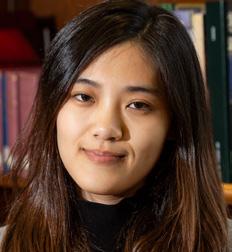
Renata Komalasari University of North Texas Administrative Leadership Honor
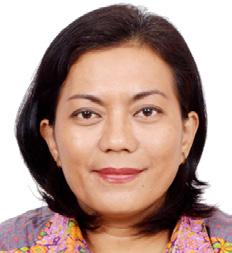

Marla J. De Jong, PhD, RN, CCNS, FAAN University of Utah College of Nursing
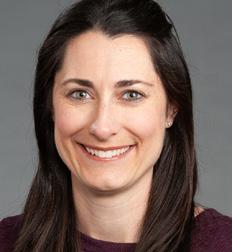
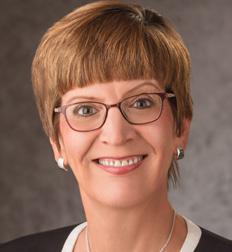
Mildred M. Seltzer Distinguished Service Honor
Margaret A. Perkinson, PhD, FGSA, FAGHE, FSfAA Journal of Cross-Cultural Gerontology

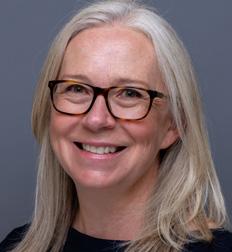
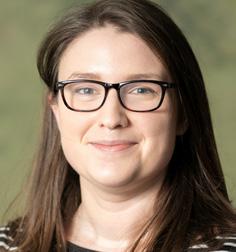
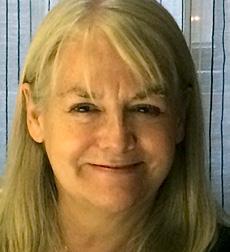
Part Time/Adjunct Faculty Honor
Josh Johnson University of Southern California
Part Time/Adjunct Faculty Honor
Joe DeMattos
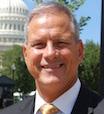
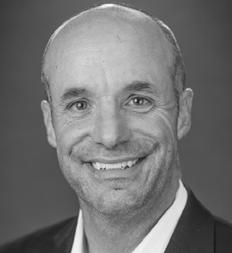
University of Maryland Baltimore County
James McKenney Student Travel Award
Moroni D. Fernandez Cajavilca
University of Utah/New York University
James McKenney Student Travel Award
Ke Li University of Pittsburgh
James McKenney Student Travel Award
Chad Federwitz Western Colorado Community College/ Pitkin County Senior Services

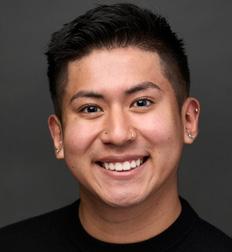
James McKenney Student Travel Award
Claire Grant Cleveland State University
James McKenney Student Travel Award
Elizabeth Handing Colorado State University
James McKenney Student Travel Award
Kallol Kumar Bhattacharyya University of South Florida
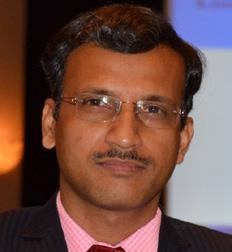
James McKenney Student Travel Award
Caroline Buse University of North Carolina at Chapel Hill
James McKenney Student Travel Award
Amy Powell-Versteeg University of Utah
James McKenney Student Travel Award
Giuliana Casanova University of Aveiro
James McKenney Student Travel Award
Janelle E. Fassi University of Massachusetts Boston
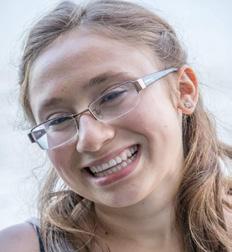
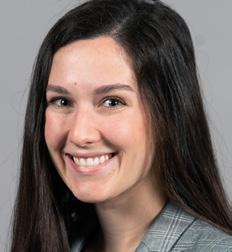
10 • December 2022 • gerontology news
2022 awardees
Behavioral and Social Sciences Section
Student Research Award, Pre-Dissertation
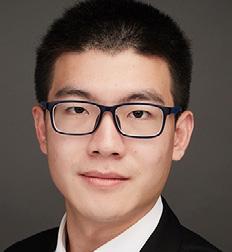
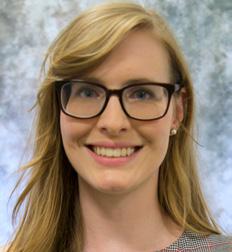
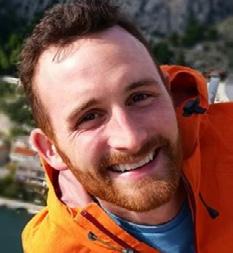

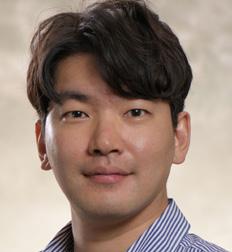
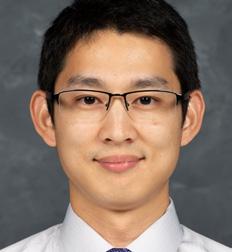
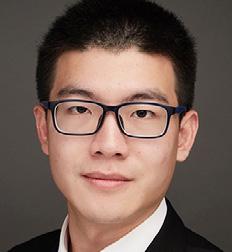
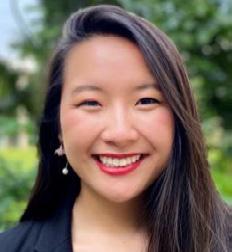
Eunyoung
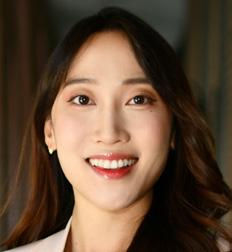
Douglas Holmes Award
Student Research Award, Dissertation

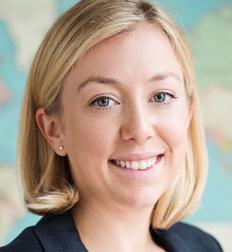

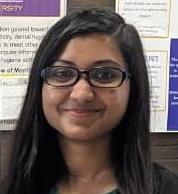
Crystal Ng University of Michigan
Boaz Kahana Student Poster Award
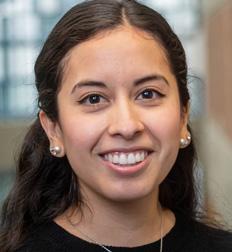
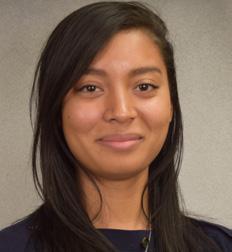
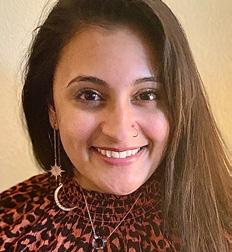

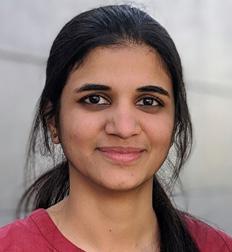
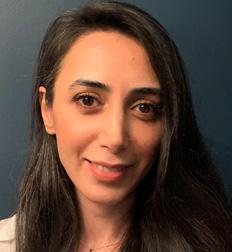
Christina
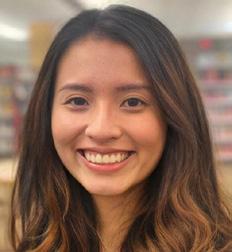
November 2020 • gerontology news • 11 December
information on GSA’s awards, visit www.geron.org/membership/awards
For
Choi, PhD New York University
Health
Section Research Award
Paper
Gerontology Committee Student Poster
Poster
X. Mu University of South Florida Biological Sciences Section George Sacher Award Bhaswati Ghosh Louisiana State University
Sciences
Samaneh Farsijani University of Pittsburgh Person-In-Training Award Anisha Suri University of Pittsburgh Austin Bloch PostDoctoral Fellow Award Lei Zhang University of Minnesota Emerging Scholar and Professional Organization Interdisciplinary
Award Aparajita Sur University of Minnesota Poster Award Alexis Reeves, MPH, PhD Stanford University Minority Issues in
Award Xiang Qi, BS, PhD candidate New York University Poster Award Elizabeth Zambrano Garza University of British Columbia
Award Xiang Qi, BS, PhD candidate New York University Poster Award Peter Sun, MSW Washington University in St. Louis
TJ McCallum Memorial Student Travel Award Soonhyung Kwon University of Illinois Urbana-Champaign Athena Koumoutzis Miami University
Xiang Qi, BS, PhD Candidate New York University Poster Award Donncha S. Mullin, MBChB, MRCPsych University of Edinburgh Poster Award
Julia Nolte Cornell University Social Research, Policy and Practice Section
Carroll L. Estes Rising Star Award
Jessica M. Finlay, PhD University of Michigan Oustanding Student Poster Award Taylor Jansen University of Massachusetts Boston



INTERDISCIPLINARY PH.D. PROGRAM IN AGING STUDIES Contact Us For More Information : K a m i l e M i t k u s , P r o g r a m C o o r d i n a t o r I n t e r d i s c i p l i n a r y P h . D . P r o g r a m i n A g i n g S t u d i e s T u l a n e C e n t e r f o r A g i n g 1 4 3 0 T u l a n e A v e . M C 8 5 1 3 , N e w O r l e a n s , L A 7 0 1 1 2 O f f i c e : 5 0 4 . 9 8 8 . 3 3 6 9 E m a i l : k m i t k u s @ t u l a n e . e d u TULANE UNIVERSITY Emphasis on aging from biological models and cells to higher cognitive function and common disorders of aging; from impacts of aging on individuals and their interactions to societal perceptions of aging; and the influence of social structures and end of life issues on an aging population Preparing the next generation of leaders in gerontology who will assume key positions in academia and in public and private sectors Featuring an interdisciplinary curriculum with training and research opportunities that integrate novel aspects of both biomedical and psychosocial aspects Broad faculty participation from the School of Medicine, School of Public Health and Tropical Medicine, School of Science and Engineering, School of Liberal Arts, School of Business, School of Social Work, School of Architecture, and School of Law Full tuition and stipend support provided Now Accepting applicants for Fall 2023 Visit our website: https://medicine.tulane.edu/tulane center aging/interdisciplinary-phd-program-aging-studies




















































